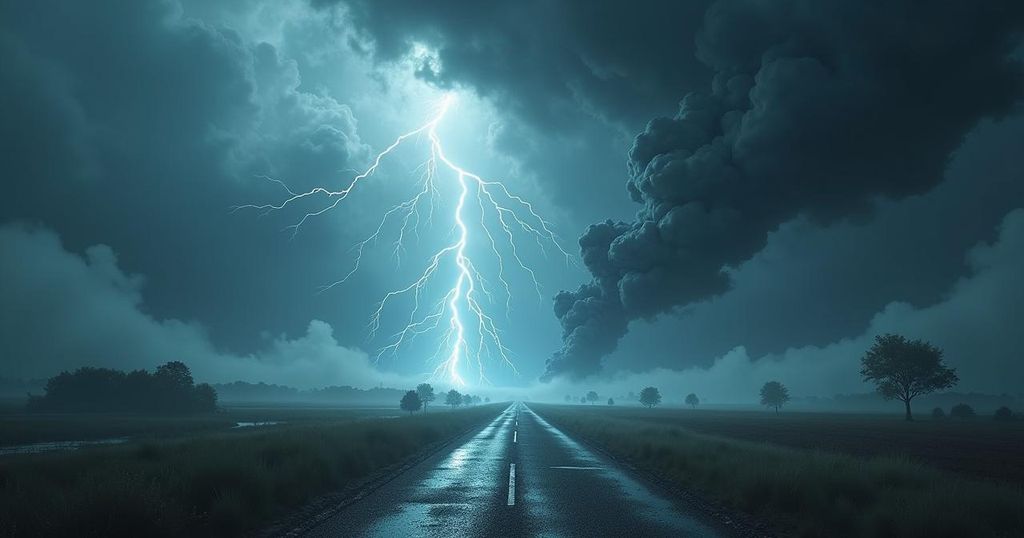Amid recent hurricanes in the United States, political discourse has erupted around climate change, with some conservative elements denying its role and spreading misinformation. Meanwhile, India has showcased effective disaster management capabilities, even as it simultaneously endorses environmentally harmful projects, underscoring the dual challenges of responding to and mitigating climate change.
In the lead-up to the United States presidential elections, recent hurricanes have ignited intense discourse surrounding climate change and political accountability. Two hurricanes, Helene and Milton, have struck the nation, leading to robust criticism directed at the Biden-Harris administration’s response efforts. Former President Donald Trump has been vocal in his denunciation of the relief operations, yet the situation is further complicated by the proliferation of misinformation emanating from some Republican circles. Supporters of Trump have promoted baseless conspiracy theories, alleging that the administration has orchestrated adverse weather conditions intentionally targeting Republican areas. This narrative is compounded by the dissemination of misleading visual content that portrays an image of governmental negligence, alongside Trump’s unfounded assertions regarding the misappropriation of hurricane relief funds toward illegal immigration. At the core of this contentious issue lies the apparent denial, among certain conservative factions, of climate change’s influence on extreme weather phenomena. Numerous scientific investigations indicate that climate change has intensified the severity of hurricanes, augmenting both their strength and rainfall. Despite this, the considerable oil lobby endeavors to perpetuate the myth that these catastrophic events are simply standard occurrences, attributing the resulting devastation to governmental failures. In contrast to the divisive climate debates in the United States, India presents a markedly different scenario. The nation has demonstrated commendable disaster management capabilities in response to cyclones, as evidenced by the effective handling of cyclone Nisarga, which struck the west coast in 2020, resulting in the evacuation of 100,000 individuals. Similarly, during cyclone Fani in 2019, 1.2 million people were evacuated within a remarkably short timeframe of less than 48 hours. This commendable responsiveness is not overshadowed by polarizing discussions surrounding climate change, as Indian leadership acknowledges its realities. However, it is important to note that Indian governments also endorse environmentally detrimental projects that exacerbate climate change, such as development activities in ecologically sensitive regions like the Aravallis and the Char Dham Pariyojana. While India has made strides in mitigating natural disasters, the actions of its governing bodies simultaneously contribute to the creation of such threats.
The article discusses the political climate in the United States amid recent hurricane events, illustrating the contrast with India’s management of natural disasters. It reflects on how the U.S. political landscape is heavily influenced by misinformation regarding climate change, particularly among conservative factions, while outlining India’s effective disaster management strategies and the paradoxes of its environmental policies. This insight is timely, considering the heightened attention to climate issues as global climate patterns continue to evolve and impact populations worldwide.
In conclusion, the discussions surrounding recent hurricanes in the United States highlight the intersection of politics and climate change acknowledgment. While some factions resist accepting the scientific consensus on climate change, the ramifications are evidenced in the escalating severity of natural disasters. In contrast, India showcases effective disaster response strategies, despite its own ongoing environmental challenges, reflecting a complex landscape of climate action and inaction across different global contexts.
Original Source: timesofindia.indiatimes.com






